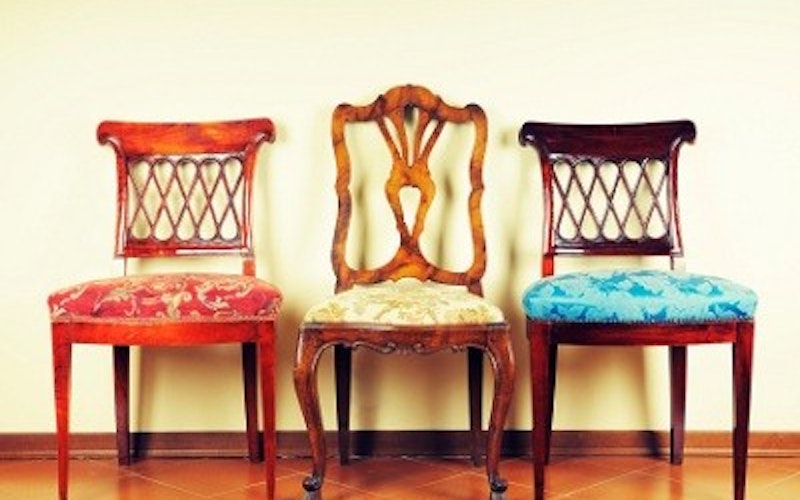
Culture At Large
Seeing ourselves in our objects
Control sits beneath our bedroom windows, with ample room inside for our spare blankets and sheets. We did not ask for it, but we came by it honestly, passed down from one generation to the next.
Generosity is where we lay our heads each night, surrounded by abundance and cooled by exploitation. We eat from beauty, wash our dishes at redemption and restoration, relax on memory to read the Sunday paper while drinking our morning coffee out of friendship.
When I consider the varied significance of the objects that populate our home, I can’t help but have mixed feelings about language such as this:
“What I need to make me happy in this life is not of this world. I was not put here to have the best of life’s goods; I was put here to have what I need for my body so my soul can thrive.”
I love Joan Chittister’s work, especially this elaboration on the Benedictine rule, and there’s certainly value in the disciplines of both asceticism and simplicity. But I think statements like this, taken out of context, have gotten Christians into trouble for centuries. Of course the acquisition of bigger and better stuff is not the ultimate purpose of human life, but it’s awfully easy to privilege the soul at the expense of the world, our home - as if such a separation were possible. Fortunately, the unworldliness here is not the end of the story. In the same book, Wisdom Distilled from the Daily, Chittister goes on to write,
Our cluttered, eclectic, colorful apartment is far from the spartan cell of a monastery, but my best hope is that it reflects a comparable degree of intentionality.
“The genius of Benedictinism is its concentration on living the active life contemplatively. Benedictine spirituality brings depth and focus to dailiness. Benedictine spirituality is as concerned with the way a thing is done as it is with what is done: guests are to be received as Christ … foods are to be selected with care … the goods of the monastery are to be treated reverently … pilgrims and the poor are to be treated with special attention … and all for the love of Christ. Life is not divided into parts holy and mundane in the Rule of Benedict. All of life is sacred. All of life is holy. All of life is to be held in anointed hands.”
Now, our cluttered, eclectic, colorful apartment is far from the spartan cell of a monastery, but my best hope is that it reflects a comparable degree of intentionality. To read our space for evidence of a rule, one might pick up on the priorities of hospitality, stewardship, beauty, nature, art, learning, music, reflection and fidelity - at least I hope so.
Of course, the broken parts of our selves are on display there, too: greed, gluttony, pride, wastefulness, privilege. In our experience, gathering objects hasn’t made us better or worse people, nor has getting rid of objects made us better or worse. Rather, we are shaped (for better or worse) by our daily liturgy, much of which involves the objects around us. That liturgy may not include fixed prayer seven times a day, but it does include eating around the table with friends, sitting quietly in a chair overlooking the river, working many hours in front of a screen and sleeping in a shared bed that is one of the tangible symbols of our marriage.
As creatures made from and for the earth, our deepest loves have nowhere else to play themselves out but on this stage, with these props, as these characters who have been locked out of Eden and face certain death. To me, it’s a great mercy that even within this play with its predictable ending, there are infinite potential symbols and meanings. Life is playful, indeed! And among my joys, I would include our halting efforts to cultivate a home that is full not just of stuff, but of love and of all of the good things that sprout from such a foundation, made real in the forms of chairs and rugs, books and baubles.
What Do You Think?
- What do the objects in your home say?
- How might they be a measure – for good and bad – of your spiritual life?
- Can Christians put too much emphasis on asceticism and simplicity or should they be a foundational aspect of our faith?
Topics: Culture At Large, Theology & The Church, Faith, Home & Family